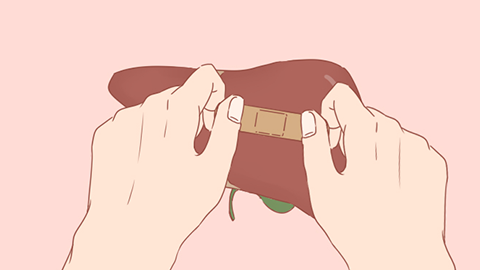What symptoms do hepatitis B virus carriers experience when they fall ill?
Generally speaking, the term "hepatitis B virus" refers to the hepatitis B virus (HBV). When carriers of the hepatitis B virus develop symptoms, they may experience poor appetite, fatigue, yellow urine, pain in the liver area, jaundice, and other related symptoms. It is recommended to seek timely medical attention, identify the underlying cause, and undergo symptomatic treatment under the guidance of a qualified physician. The specific symptoms are analyzed as follows:

1. Poor Appetite
Impaired liver function in carriers of the hepatitis B virus leads to insufficient bile secretion, which affects the digestive system's ability to break down and digest food, thus causing a loss of appetite.
2. Fatigue
Carriers of the hepatitis B virus experience impaired liver metabolism, which affects the gastrointestinal tract's ability to absorb nutrients from food. This results in insufficient energy in the body, leading to symptoms such as general weakness and easy fatigue.
3. Yellow Urine
Carriers of the hepatitis B virus have impaired liver function, which weakens the body's ability to break down bilirubin. Accumulation of bilirubin in the body causes urine to turn yellow when excreted through urination.
4. Pain in the Liver Area
Hepatitis B virus can cause liver inflammation or liver enlargement, which stimulates nerves on the liver capsule, resulting in a sensation of pain.
5. Jaundice
The hepatitis B virus affects the metabolism of bilirubin, leading to an increase in unconjugated bilirubin in the blood. This bilirubin deposits in the skin and sclera, causing the patient's skin and whites of the eyes to appear yellow.
Patients can follow medical advice to use medications such as entecavir dispersible tablets, tenofovir disoproxil fumarate tablets, lamivudine tablets, and other prescribed treatments. During the treatment period, maintaining a positive and optimistic mindset while avoiding excessive anxiety and depression is beneficial for recovery.





